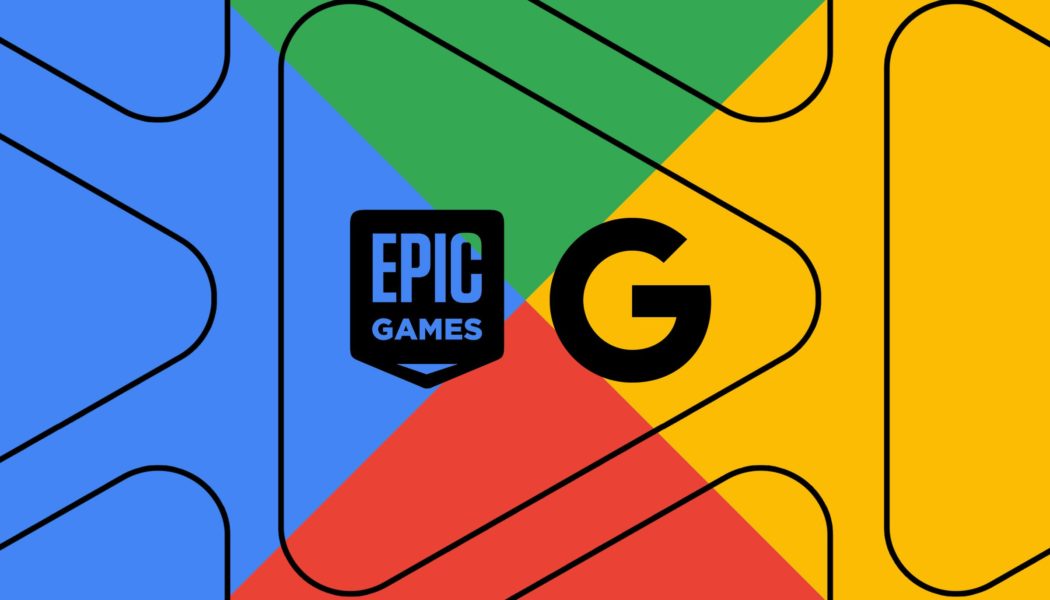technology
An X outage broke all outgoing links, again
Tech/ Twitter – X / Clicking links on X revealed only an error message, not the page you intended to visit. By Richard Lawler, a senior editor following news across tech, culture, policy, and entertainment. He joined The Verge in 2021 after several years covering news at Engadget. Share this story Image: The Verge As if publishers and users didn’t have enough reasons to reconsider their connections to the platform formerly known as Twitter, all outgoing links from X stopped working Wednesday afternoon. A problem with the URL redirect that captures activity before sending users on their way sent people to a simple error page saying, “This page is down. I scream. You scream. We all scream… for us to fix this page. We’ll stop making jokes and get things up and running soon.” After...
Apple will make it harder for governments to get your push notifications
/ The change comes after both Apple and Google confirmed they have supplied information associated with mobile push notifications to governments. By Wes Davis, a weekend editor who covers the latest in tech and entertainment. He has written news, reviews, and more as a tech journalist since 2020. Share this story Photo by Amelia Holowaty Krales / The Verge Apple will require law enforcement to obtain a court order before the company hands over details of customers’ push notifications from now on. As Reuters reports, Apple quietly updated its guidelines for law enforcement page on Monday with language specifying that search warrants and court orders are now required for it to give up “The Apple ID associated with” an Apple Push Notification Service token. The new policy follows revelations ...
The world came tantalizingly close to a deal to phase out fossil fuels
/ Against all odds, climate-vulnerable countries still managed to score some key wins at the United Nations summit in Dubai. By Justine Calma, a science reporter covering the environment, climate, and energy with a decade of experience. She is also the host of the Hell or High Water podcast. Share this story If you buy something from a Verge link, Vox Media may earn a commission. See our ethics statement. DUBAI, UNITED ARAB EMIRATES – DECEMBER 11: Sultan Ahmed Al Jaber (C), President of the COP28 UNFCCC Climate Conference, emerges from negotiations over the wording of the Presidential draft on day eleven of the UNFCCC COP28 Climate Conference.Photo by Sean Gallup/Getty Images What would have been a historic deal to tackle a planetary crisis slipped out of reach at the eleventh hour.E...
Starlink loses out on $886 million in rural broadband subsidies
/ The FCC’s final denial says Starlink hasn’t proven it can “deliver the promised service” of rural broadband. By Wes Davis, a weekend editor who covers the latest in tech and entertainment. He has written news, reviews, and more as a tech journalist since 2020. Share this story Illustration by Alex Castro / The Verge The FCC announced today that it won’t award Elon Musk’s Starlink an $886 million subsidy from the Universal Service Fund for expanding broadband service in rural areas. The money would have come from the Rural Digital Opportunity Fund program (RDOF), but the FCC writes that Starlink wasn’t able to “demonstrate that it could deliver the promised service” and that giving the subsidy to it wouldn’t be “the best use of limited Universal Service Fund dollars.” That was the same re...
Starlink loses out on $886 million in rural broadband subsidies
/ The FCC’s final denial says Starlink hasn’t proven it can “deliver the promised service” of rural broadband. By Wes Davis, a weekend editor who covers the latest in tech and entertainment. He has written news, reviews, and more as a tech journalist since 2020. Share this story Illustration by Alex Castro / The Verge The FCC announced today that it won’t award Elon Musk’s Starlink an $886 million subsidy from the Universal Service Fund for expanding broadband service in rural areas. The money would have come from the Rural Digital Opportunity Fund program (RDOF), but the FCC writes that Starlink wasn’t able to “demonstrate that it could deliver the promised service” and that giving the subsidy to it wouldn’t be “the best use of limited Universal Service Fund dollars.” That was the same re...
Snapchat now lets subscribers share AI-generated snaps
/ Snapchat Plus subscribers can now also ‘extend’ a photo by using AI to fill in the surrounding environment. By Emma Roth, a news writer who covers the streaming wars, consumer tech, crypto, social media, and much more. Previously, she was a writer and editor at MUO. Share this story Illustration by Alex Castro / The Verge Snapchat is getting even more generative AI features. The messaging app now lets Snapchat Plus subscribers create images based on a text prompt and send them to friends. Those who subscribe to Snapchat’s $3.99 plan can use the feature by tapping the “AI” button from the toolbar on the right side of the camera interface. This opens up a window where users can type a text prompt or choose from one of the premade options, like “a futuristic disco” or “a rocket preparing fo...
Marvel’s Black Panther Disney Plus series will dig into Wakandan history
/ Marvel’s upcoming Eyes of Wakanda series will follow the lives of multiple Wakandan warriors from different parts of the nation’s history. By Charles Pulliam-Moore, a reporter focusing on film, TV, and pop culture. Before The Verge, he wrote about comic books, labor, race, and more at io9 and Gizmodo for almost five years. Share this story Details about Marvel’s forthcoming Black Panther spinoff series have been sparse since the studio first announced it a couple years back. But ahead of What If …?’s season 2 premiere on Disney Plus, the streamer’s just shared a few promising details about what to expect from The Eyes of Wakanda. Along with reminders about the impending arrivals of X-Men ‘97 and Your Friendly Neighborhood Spider-Man (formerly titled Spider-Man: Freshman Year), and new de...
Apple’s new iPhone security setting keeps thieves out of your digital accounts
/ Apple’s Stolen Device Protection feature in the iOS 17.3 beta would require extra steps to access details on an iPhone. By Emma Roth, a news writer who covers the streaming wars, consumer tech, crypto, social media, and much more. Previously, she was a writer and editor at MUO. Share this story Photo by Allison Johnson / The Verge Apple is making it harder for iPhone thieves to access your personal information if they get ahold of your device’s passcode. As reported by The Wall Street Journal, Apple includes new Stolen Device Protection in its iOS 17.3 beta that, when enabled, would require authentication through Face ID or Touch ID to perform certain actions. The new feature appears to come in response to the concerns raised in previous reports by The Wall Street Journal describing how ...
Netflix reveals how many hours we spent watching The Night Agent and Queen Charlotte
/ The first ‘What We Watched’ engagement report is the clearest look yet at how much people are watching Netflix’s TV shows and movies. By Jay Peters, a news editor who writes about technology, video games, and virtual worlds. He’s submitted several accepted emoji proposals to the Unicode Consortium. Share this story Illustration by Nick Barclay / The Verge Netflix is going to start publishing a new report twice a year that details the most popular shows and movies on the platform. The first report, released today, details the most-watched content from January to June 2023, and it’s perhaps the best look yet at how much people are actually watching Netflix’s gargantuan library of titles. “What We Watched: A Netflix Engagement Report” will track three metrics: hours watched, whether a show ...
The Apple TV app is trying to be a one-stop shop for all your streaming entertainment
/ The iTunes Store app will now direct users who wish to buy films or shows to Apple TV’s storefront. By Amrita Khalid, one of the authors of audio industry newsletter Hot Pod. Khalid has covered tech, surveillance policy, consumer gadgets, and online communities for more than a decade. Share this story Image: Apple Apple rolled out a revamped Apple TV app as a part of its suite of new software releases on Monday. The tvOS 17.2 update includes a new sidebar for the TV app, which is designed to better showcase non-Apple TV Plus offerings and let users easily jump to other Apple content like MLS Season Pass. It also makes for a quick shortcut to apps like Disney Plus, Max, Prime Video, or Apple’s store, where you can purchase or rent digital titles to stream. Prior to the update, it was easy...
Epic win: Jury decides Google has illegal monopoly in app store fight
/ The jury decided Google’s sweetheart deals were too much. By Sean Hollister, a senior editor and founding member of The Verge who covers gadgets, games, and toys. He spent 15 years editing the likes of CNET, Gizmodo, and Engadget. Share this story If you buy something from a Verge link, Vox Media may earn a commission. See our ethics statement. Illustration by Cath Virginia / The Verge Three years after Fortnite-maker Epic Games sued Apple and Google for allegedly running illegal app store monopolies, Epic has a win. The jury in Epic v. Google has just delivered its verdict — and it found that Google turned its Google Play app store and Google Play Billing service into an illegal monopoly. After just a few hours of deliberation, the jury unanimously answered yes to every question put bef...
Netflix is back, after an outage knocked many people offline for a few hours
/ Netflix customers around the world were seeing error messages about network connection problems between 5PM and 8PM ET on Monday. By Richard Lawler, a senior editor following news across tech, culture, policy, and entertainment. He joined The Verge in 2021 after several years covering news at Engadget. Share this story Illustration by Nick Barclay / The Verge People worldwide have reported trouble connecting to Netflix and a strange “tvq-pb-101” error message starting at around 5PM ET until the issue was resolved at around 8PM ET. Given the service’s global availability and massive subscriber base, small outages are common, but what we saw on Monday evening is different. Here at The Verge, among writers and editors scattered across the country, some of us could stream just fine, while ot...





















